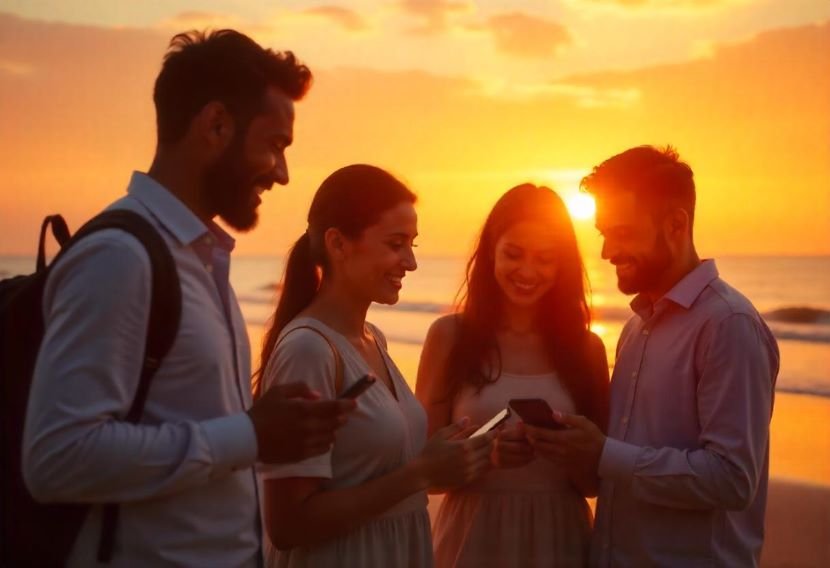Artificial intelligence (AI) has snaked its way into every corner of the travel industry—as well as most of the tech-reliant world—and marketing is no exception.
It’s already clear that search engine optimization (SEO) is changing, but how will generative AI affect marketing in the long term? How should travel brands navigate a changing environment?
According to experts, we’ll have to wait and see, especially as marketing evolves amid ongoing shifts, including the rise of agentic AI and Instagram’s integration with Google.
As part of Phocuswright’s five-part online The New Age(nts) Trend Series—which aligns with its Travel Innovation and Technology Trends 2025 report—a panel of industry experts discussed online visibility and traveler engagement with AI tools, including Google’s AI Overviews and AI modes that are already changing the search experience.
Mike Coletta, senior manager of research and innovation for Phocuswright, set the stage, asking the panel about a hot topic: search.
Subscribe to our newsletter below
“The elephant in the room is search, because that’s where most people, historically, have started their trips,” he said.
Experts dove into what they believe is coming down the pike, particularly with AI Overviews suddenly taking over Google’s results page, in addition to other indicators of an AI-driven wave of change.
“I think the biggest thing that you can know is that it’s going to change even further—the one thing that is certain is change,” said John Lyotier, co-founder and CEO of TravelAI.
Brennen Bliss, CEO of Propellic, agreed.
“The best answer I can give you is nobody really knows right now what the purchase path will look like in a year,” Bliss said.
“I have an expectation that there will be a transition of the primary service people use to research and plan and book travel, which is right now the Google search experience. Whether that lands with Google, or whether that lands with another chatbot, is to be determined by the market.”
Looking ahead
The panelists also opened up about what they think marketing will look like further down the line and offered advice on how to prepare.
Panelists agreed the best thing companies and employees can do is to be curious about what’s coming and to embrace it.
Michael Goldrich, president of HSMAI NYC and founder of Vivander Advisors, said the new job of marketers will be “an agent boss.”
“You’re going to have a lot of agents that can do the social, the writing and the newsletters, all this,” he said. “And the person’s job is ultimately going to be managing these series of agents. … You’re not going to be a revenue manager anymore, or a marketer, you’re going to be managing workflows.”
Goldrich said there will be a shift in how people work, and the success of this shift will depend on how well they understand this new technology. By learning and understanding, Goldrich said travel marketers can win.
“It’s continual learning,” he said. “It is understanding and just getting empowered.”
Bliss added that there will be a “very stark divide” between winning players and those who struggle in an AI-focused marketing space.
“Intellectual curiosity will win. Insatiability and the inability to be satisfied with the status quo will win,” he said. “There’s only so much that a company can do. I think that there is a responsibility to create awareness for a company to their team and employees. I do think that there is also personal ownership in this whole situation.”
The need for experimentation
Lyotier said that, as has held true historically with the rise of tools like Google, “experimentation is key.”
According to Lyotier, marketing is a combination of art and science, but it comes down to math, and measurable marketing will succeed.
“I don’t think that’s going to change,” Lyotier said. “If you look at the big picture and go back up many, many layers, travel as an industry is growing 8% year over year. If travel is growing 8% year over year, there are more consumers who are traveling. As travel becomes more efficient, there’s more dollars left to travel more efficiently. If you market travel more efficiently, more people will travel.”
What marketers should do, Lyotier said, is find out what works best for them to stand out above the crowd.
“Marketing is math. Find the channels that work for you, whatever it happens to be—paid, organic, new methods—constant experimentation is the key.”
The panelists also touched on personalization, AI advertisement creation, agent-to-agent communication and digital identity.
Watch the full discussion below:
GenAI’s Impact on Travel Marketing: Phocuswright’s The New Age(nts) Trend Series Part 4

























You must be logged in to post a comment Login